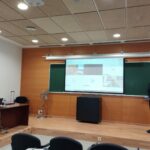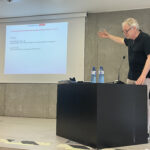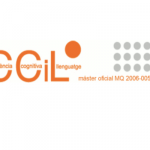19 juny, 2012
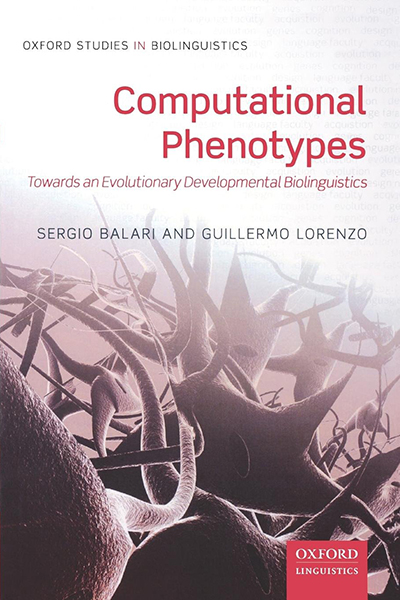
Autors:
Sergio Balari and Guillermo Lorenzo
Títol:
Computational Phenotypes: Towards an Evolutionary Developmental BiolinguisticsEditorial: Oxford University Press
Data de publicació: 2012
Pàgines: 256ISBN13: 9780199665464
Més informacióThis is a book about language as a species-typical trait of humans. Linguists customarily describe it as an extremely exceptional capacity, even when compared with the biological endowment of closely related species, and this is the source of the many quarrels that exist around the aim of explaining its evolutionary origins.
This book argues that language is not so exceptional after all, as according to the text it is just the human version of a rather common and conservative organic system that they refer to as the Central Computational Complex. The book argues that inter-specific variation of this organ is restricted to (i) accessible memory resources, and (ii) patterns of external connectivity, both being the result of perturbations in the system underlying its development. The book thus offers a fresh perspective on language as a naturally evolved phenomenon.
20 juny, 2015
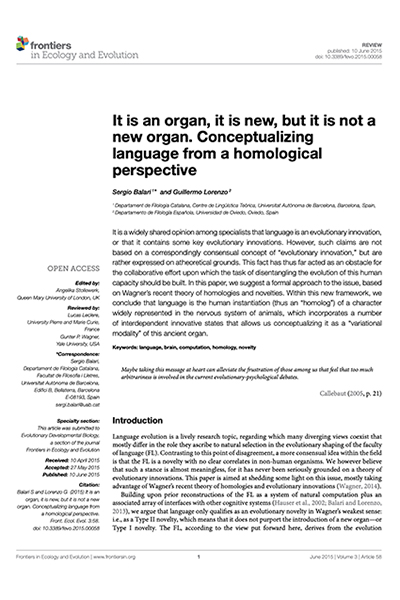
Autors:
Sergio Balari, Guillermo Lorenzo
Títol:
It is an organ, it is new, but it is not a new organ. Conceptualizing language from a homological perspectiveEditorial: Frontiers
Col·lecció: Frontiers in Ecology and Evolution #3Data de publicació: 2015
Pàgines: 18 Més informació
Text completIt is a widely shared opinion among specialists that language is an evolutionary innovation, or that it contains some key evolutionary innovations. However, such claims are not based on a correspondingly consensual concept of “evolutionary innovation,” but are rather expressed on atheoretical grounds. This fact has thus far acted as an obstacle for the collaborative effort upon which the task of disentangling the evolution of this human capacity should be built.
In this paper, we suggest a formal approach to the issue, based on Wagner's recent theory of homologies and novelties. Within this new framework, we conclude that language is the human instantiation (thus an “homolog”) of a character widely represented in the nervous system of animals, which incorporates a number of interdependent innovative states that allows us conceptualizing it as a “variational modality” of this ancient organ.
1 març, 2019
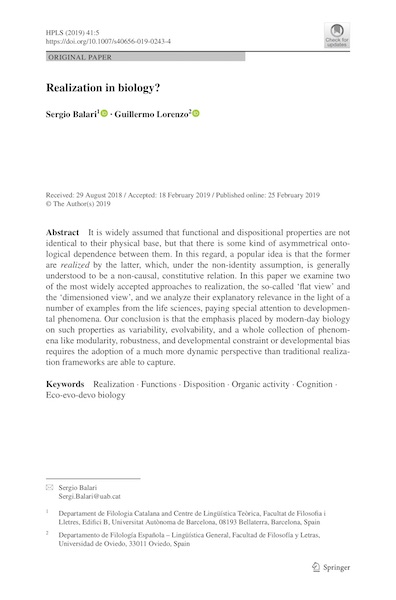
Autors:
Sergio Balari, Guillermo Lorenzo
Títol:
Realization in biology?Editorial: Springer
Col·lecció: History and Philosophy of the Life Sciences #41:5Data de publicació: 2019
Pàgines: 27 Més informació
Text completIt is widely assumed that functional and dispositional properties are not identical to their physical base, but that there is some kind of asymmetrical ontological dependence between them. In this regard, a popular idea is that the former are realized by the latter, which, under the non-identity assumption, is generally understood to be a non-causal, constitutive relation. In this paper we examine two of the most widely accepted approaches to realization, the so-called ‘flat view’ and the ‘dimensioned view’, and we analyze their explanatory relevance in the light of a number of examples from the life sciences, paying special attention to developmental phenomena. Our conclusion is that the emphasis placed by modern-day biology on such properties as variability, evolvability, and a whole collection of phenomena like modularity, robustness, and developmental constraint or developmental bias requires the adoption of a much more dynamic perspective than traditional realization frameworks are able to capture.
10 juny, 2020
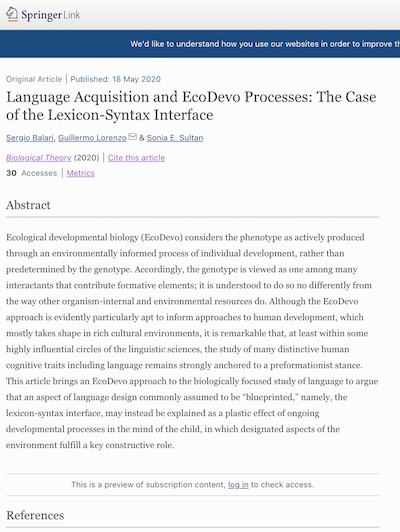
Autors:
Balari, S., Lorenzo, G. & Sultan, S.E.
Títol:
Language Acquisition and EcoDevo Processes: The Case of the Lexicon-Syntax Interface. Biological TheoryEditorial: Springer
Data de publicació: Maig del 2020
Més informació
Text completEcological developmental biology (EcoDevo) considers the phenotype as actively produced through an environmentally informed process of individual development, rather than predetermined by the genotype. Accordingly, the genotype is viewed as one among many interactants that contribute formative elements; it is understood to do so no differently from the way other organism-internal and environmental resources do. Although the EcoDevo approach is evidently particularly apt to inform approaches to human development, which mostly takes shape in rich cultural environments, it is remarkable that, at least within some highly influential circles of the linguistic sciences, the study of many distinctive human cognitive traits including language remains strongly anchored to a preformationist stance. This article brings an EcoDevo approach to the biologically focused study of language to argue that an aspect of language design commonly assumed to be “blueprinted,” namely, the lexicon-syntax interface, may instead be explained as a plastic effect of ongoing developmental processes in the mind of the child, in which designated aspects of the environment fulfill a key constructive role.
14 abril, 2020
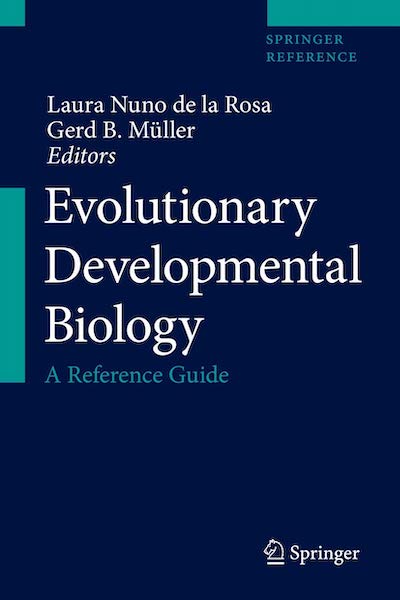
Autors:
Sergio Balari & Guillermo Lorenzo
Títol:
Evo-Devo of language and cognition. In L. Nuño de la Rosa & Gerd B. Müller, eds. Evolutionary Developmental Biology. A Reference Guide.Editorial: Springer
ISBN13: 978-3-319-33038-9
Més informacióHistorically, the task of disentangling the evolutionary origins of language has been obscured by a number of difficulties that may be diagnosed as the problem of ontology (what the evolved phenotype is), the problem of computation (what kinds of cognitive processes subserve linguistic activity), the problem of representation (what is the nature of the objects of computation), the problem of homology/novelty (how language relates with animal cognition at large), and the problem of selection (how language has been fixed as a species-typical trait). While assuming that facets of these problems remain as recalcitrant as ever, this chapter explains how the adoption of the developmental perspective offers the promise of gaining a degree of explanatory accuracy hitherto unknown in this field of specialization.






